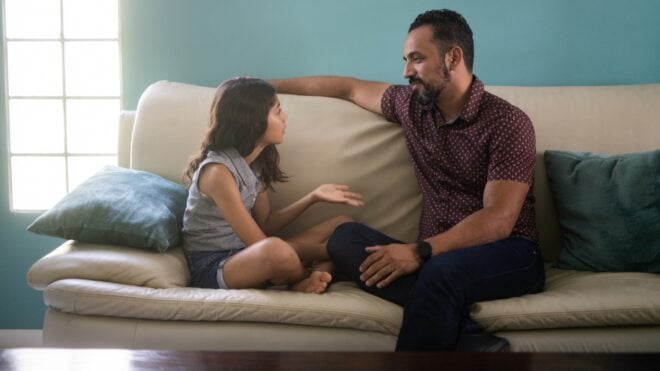In my inbox was an email from someone titled "Be Grateful." I opened it. "You strike me as too miserable," she wrote. "Focus on being more grateful."
She explained she had come across my writing and was "appalled" at my attitude. "You need an attitude of gratitude," she signed off.
RELATED: Millennial Parents Aren't Who You Think We Are
I laughed. "Attitude of gratitude" was what my mom used to chime at all eight of us kids when we'd whine for McDonald's, Tamagotchis or the new Amy Grant album.
And in my own way, I say it to my kids. "Let's not focus on what we don't have," I tell my 4-year-old. "Instead, let's think about what we do have."
Once, after I told her this, she crossed her arms and pouted. "All I have is nothing and a mean, cranky little brother."
Telling someone who is sad or frustrated to just be grateful is good but meaningless advice.
Telling someone who is sad or frustrated to just be grateful is good but meaningless advice. But it happens often. I've had people tell me that I should be grateful that a family member, who almost lost her life in a car accident and has had a long recovery, was alive. I've heard people tell grieving parents to just be grateful for their other kids who are alive. Recently, as I complained that my 2-year-old is struggling to eat at meals, my neighbor told me to just be happy I had food to give him. "That will give you perspective," she said.
But it actually doesn't and it forces a false binary on our lives. I can both be grateful for the food on my table and frustrated that my son doesn't eat it. Gratitude is a red herring.
To be sure, focusing on gratitude does have its benefits. Study after study has shown that keeping a daily list of the things you are grateful for has benefits that stretch beyond emotional well-being and happiness, though those two things alone would be enough.
But gratitude when it is used as a cudgel to squelch perfectly natural emotions of longing, anger, fear and frustration doesn't help at all.
When parents focus on positivity they ignore their children's negative emotions
A recent study done by Scott P. Mirabile, PhD, assistant professor of psychology at St. Mary's College of Maryland, found that when parents focus on positivity they ignore their children's negative emotions and this could have some, well, negative consequences. The study published recently in the European Journal of Developmental Psychology calls ignoring negative emotions an unsupportive emotional strategy. They note: "the finding that parents' ignoring correlates positively with children's emotional liability, anger and aggression suggests that parental ignoring is not only a response to children's poor emotional behavior, but also may be a cause of it."
When you have children prone to bouts of anguish over the fact that they can't bring rocks into the house, walking the line of validating emotion and also not giving into it can be tricky. After reading the study, instead of pushing my kids to focus on gratitude only when they are feeling upset, I've tried to preempt it; I ask them every morning for one thing they are thankful for.
RELATED: 10 Road Trip Survival Tips No Parent Will Admit To
For my 2-year-old it's always baseball. Every day. But 4-year-old is into it. I've found that asking this question outside of negative behavior and emotions elicits more positive responses than "All I have is nothing and a mean, cranky little brother." Yesterday, she was actually grateful for her "sweet, little brother and whole family."
None of this is perfect, but nothing ever is—and for that I am grateful.




